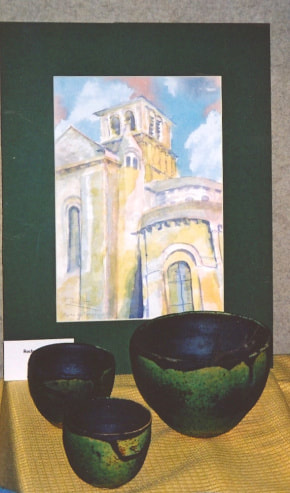 Life is full of them. All those things that are caused, but not planned, or intended. Recently we seem to have witnessed some big ones: There are many who wonder if the Brexit vote would have gone the way it did if some of the implications that have become clearer since had been known beforehand. There are those who continue to wonder how it is that Donald Trump came to be elected US President. Closer to home, the new traffic lights at the Warwick Road/Poplar Road junction while helping the new bus lane work well tends to cause gridlock on the main Lode Lane roundabout! I trust that was not intentional. How do we view such things in a world where we consider that God has an overall plan which will ultimately come to fruition? Is it that these are all down to human error or stupidity? This is clearly not the case in the eyes of everyone, for some see wisdom and progress in the two election outcomes. Is it that they are all part of a lengthy process within which we struggle and continue to seek God’s direction, even in opposition to others? Of course we each want to sense that God’s plan is much the same as ours, while also knowing full well that we are on a life-time journey to discover the truth of God and his creation. However, none of us has any real conception of the changes that are necessary not only in others, but in ourselves as well. Except that when we encounter Jesus and hear his call to such as loving our enemies, seeking a faith that will move mountains, losing our life rather than clinging to it, we begin to glimpse the scale of the struggle. Martin Luther was an Augustinian monk in 16th Century Germany. A life devoted to seeking a closer relationship with Christ led him to challenge aspects of church life and invite the church to debate the practice of ‘indulgencies’ and how people find God’s forgiveness. Pinning the case for discussion on the cathedral door in Wittenburg 500 years ago sparked what we now call the Reformation, the development of the Protestant churches, numerous bloody conflicts across Europe and the world and attitudes between Christians that we continue to seek to understand and resolve today – and it is not just to do with the Week of Prayer for Christian Unity. The Reformation also led to the translation of the Bible into everyday language, which itself shaped a common language in Germany that led to the unification of its many principalities. None of this was part of Luther’s intent, but we recognise the fruits as well as the struggles over the centuries. My understanding is that, as long as we continue to seek Christ in our world and the leading of the Spirit in our decision-making then, despite the mess we tend to make, God will bring his fruit to growth. What Luther reminds us is that ultimately it is only Christ who can put us right. He needs to live as Lord within our political systems, our churches and our personal lives. The image is of some of my pots from a few years back. They are all ‘unintended consequences’, as however much you shape them with your skill, submitting them to the fire of the kiln will always mean that you can never anticipate the final result. Sometimes it means that the work needs to be broken up. At other times the unintended can be beautiful – and real surprise!
0 Comments
Leave a Reply. |
Archives
March 2024
|
 RSS Feed
RSS Feed
